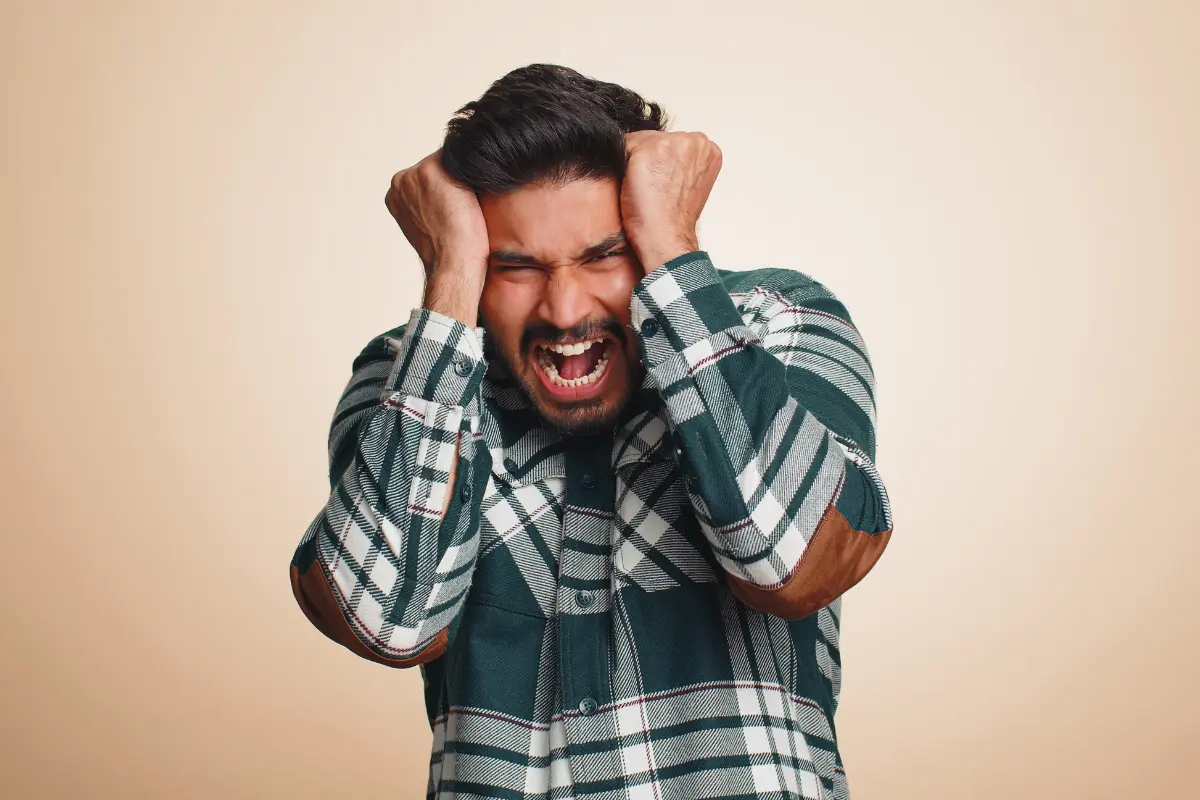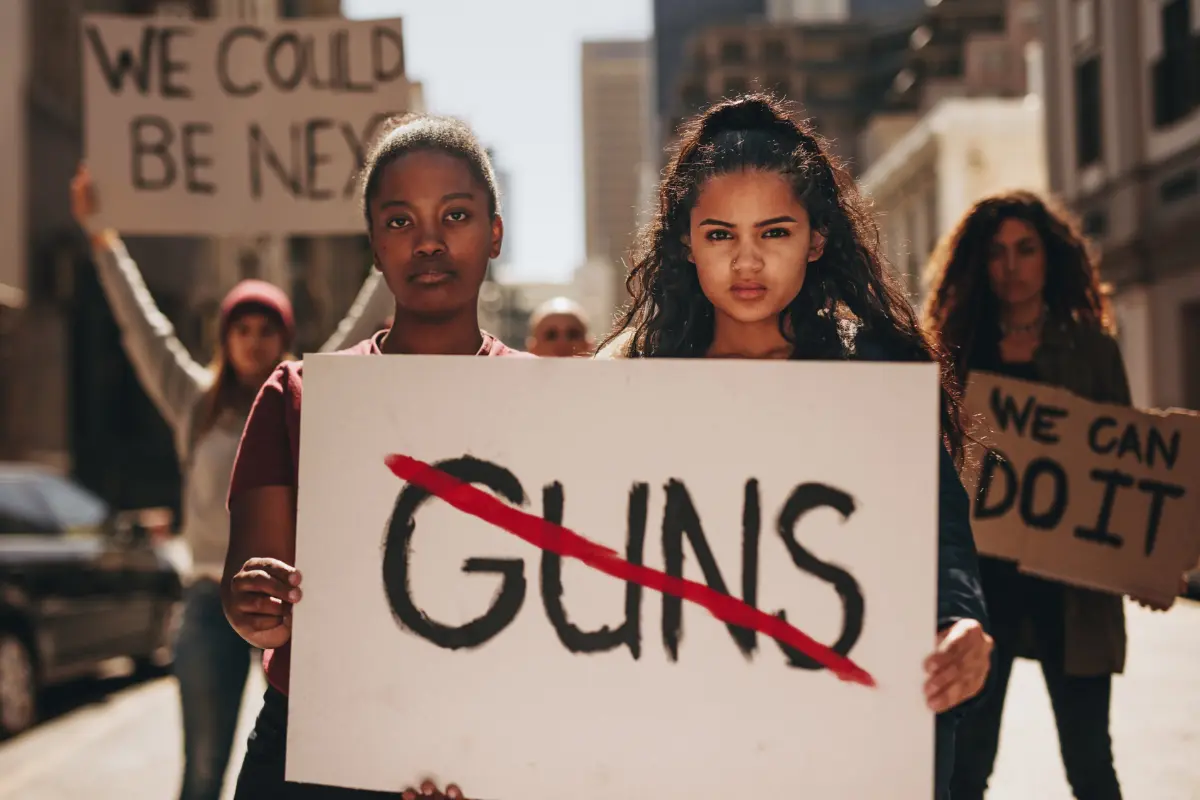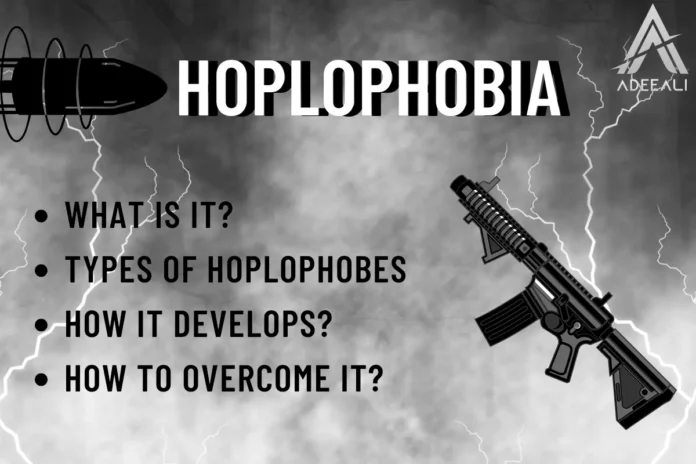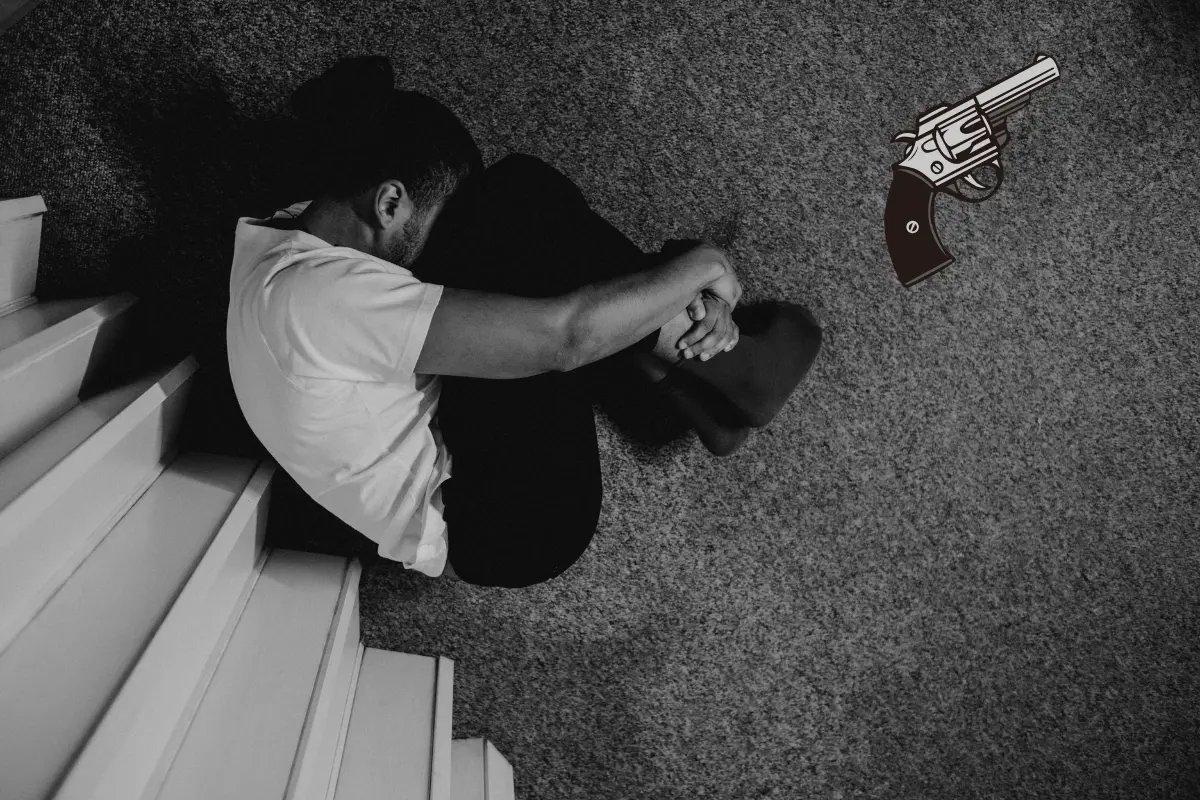Are you curious about the roots of your fear? Are guns your greatest fear? Let’s unpack why.
On one side there are roughly 90-million legitimate gun owners in the database of the U.S government, but on the other side almost one-tenth of the population has fear of guns.
There is a special term derived for this fear which is “Hoplophobia”. Now you must be wondering what exactly it is and how it develops.
Do you want to diagnose yourself whether you have this condition or not? What if you or someone you know has been suffering from this fear?
Don’t worry! In this article we will not only describe this phobia of guns but will also tell you its treatment and some tips to overcome this fear.
Sit tight and read this article to the end to get all your queries answered!
Hoplophobia etymology:
When we study the etymology of this word, we get to know that this word is made up of 2 different words.
One is “hoplo” which means or denotes firearms/weapons. And the second word is a bit popular one which is “phobia” by whose meaning everyone seems well familiar.
So the combination of both these words give us a compound word “hoplophobia” which ultimately means “fear of guns and weapons”
When we look at how this word came into being or who coined it for the first time, then we get to know that Colonel Jeff Cooper was the person who developed/used this term for the first time.
He was one of the finest men of the U.S military. He is also known as the creator of the modern tips that are used today in handgun shooting.
What is Hoplophobia?
Hoplophobia is actually an illogical fear in which the people get scared of guns, weapons and other firearms.
It’s like having a super strong fear of them, even if they’re not being used in a harmful way. That’s why we are calling it illogical.
If a weapon is being used in a harmful way, only then its terror and fright would be considered logical and rational. Pretty obvious! Isn’t it?
But even if a weapon isn’t being used in a harmful way right now, hoplophobic people will still worry that it could be used for something bad in the future. These people are actually very uncertain about its use and due to any of their bad experiences they would misjudge it.

Who are Hoplophobes?
As evident, hoplophobes are the affected people who are suffering from this phobia. This phobia has different types of manifestations.
Some hoplophobes get scared after seeing those weapons while some get scared after handling those weapons. Now there are two types of people who get scared after seeing these weapons, one who sees them in a picture or T.V and gets distressed, second who sees these weapons in real life.
Now as you would expect, the second ones have a bit of practical fear but the first ones are facing an impractical fear.
In its extreme condition, people get terrified by mere thinking about those weapons but it happens in a very trivial percentage of affected ones.
Guns Culture in America:
Americans have a long history with guns, and how they feel about them is complicated. Some people feel really proud of guns, while others feel really scared of them. Because of this, guns often cause big arguments in our society.
Here are some results from a recent survey conducted by Pew Research Center on the relationship of Americans with guns:
1) Gun ownership in U.S:
Not much has changed in the number of adults who say they own a gun or have one in their household lately.
About one-third (32%) of adults say they have a gun, and 10% say someone else in their home owns a gun.
When we look at gender and race oriented division then it is said that men are more likely to own guns than women. Four out of ten men say they have a gun, while only a quarter of women say the same. On the other hand, white adults are more likely to own guns than Black, Hispanic, and Asian adults.
More people in rural areas own guns than those living in suburban or city areas. Nearly half (47%) of people in rural areas have guns, compared to 30% in the suburbs and 20% in urban areas.
2) Difference in viewpoint of gun owners vs non-owners:
Most people who own guns feel really good about it. They say it makes them feel safer and they enjoy having a gun.
But if someone doesn’t own a gun themselves, but there’s a gun in their house, they’re not as likely to have a positive sentiment about it.
For example, according to the survey, 81% of gun owners have a viewpoint that having a gun makes them feel safer, but only 57% of people who don’t own guns but live in houses with guns say the same.
And a larger share of non-owners (about 27%) say that they are worried about having a gun in their home and sometimes this makes them feel terrified.
These 27% are the people who actually have hoplophobia. Because they are not owners and if someone in their home owns a gun, it wouldn’t be to assault someone rather it would be for their own protection.
How does fear of weapons develop?
It can develop from various reasons, and it’s often a complex process influenced by a combination of factors:
1) Traumatic experiences:
Direct exposure to gun-related violence or traumatic events involving firearms leads to the development of this phobia of guns.
It includes witnessing any violence firsthand, such as gun accidents, armed robberies, or shootings. These traumatic experiences related to firearms can create a lasting fear about guns.
2) Media influence:
Media, especially the entertainment industry, has a great role in creating this phobia.
Exposure to negative portrayals of guns in movies, television shows, or news reports shape the perceptions of viewers. And this thing then contributes to the development of fear of firearms.
Moreover, sensationalized stories of gun violence or accidents amplify fear and anxiety about firearms, especially for those individuals who have limited real-life experience with guns.
3) Cultural and societal factors:
Cultural attitudes and societal beliefs about guns play a significant role in shaping individuals’ perceptions and fears.
In societies where guns are widely accessible and gun violence is prevalent, individuals of that society are more prone to develop this fear.
4) Psychological factors:
Underlying psychological factors, such as anxiety disorders or post-traumatic stress disorder (PTSD), can contribute to the development or exacerbation of phobia of guns.
Individuals with preexisting anxiety or trauma-related conditions are particularly susceptible to developing this irrational fear of firearms.
5) Family and upbringing:
Family upbringing and exposure to firearms during childhood can shape attitudes and fears towards guns later in life.
The major deciding factor in children’s perceptions is parents’ attitudes and beliefs. Parent’s perspectives regarding firearms shape their children’s attitudes. If parents exhibit fear and aversion towards firearms, then their children would definitely develop similar fears or anxieties.
That’s why it is said that children should be provided with a peaceful environment otherwise they would develop fear of guns later.
Hoplophobia Treatment:
Treating fear of firearms usually involves a combination of therapeutic approaches which are aimed at addressing underlying anxieties and changing negative associations with guns.
Here are some common strategies for treating phobia of guns:
1)Cognitive-behavioral therapy (CBT):
CBT is a widely used therapeutic approach for treating various phobias, including hoplophobia. It involves identifying and then challenging irrational thoughts about firearms and then replacing them with realistic perspectives.
It also involves providing accurate information about firearms, safety measures, and responsible gun ownership.
2) Systematic desensitization:
Systematic desensitization therapy is a type of therapy that helps people overcome their fears by gradually exposing them to what they’re afraid of in a safe and controlled way.
Here’s how it works:
First, the person and their therapist make a list of things related to guns that scare them, starting from the least scary to the most scary. For example, holding a toy gun might be less scary than holding a real gun.
Then, they start practicing relaxing techniques like deep breathing or muscle relaxation.
Next, they slowly start facing the things on their list, starting with the least scary one. They practice staying calm and using their relaxation techniques while doing it. For example, they might start by looking at pictures of guns.
As they get more comfortable with each step, they move on to scarier things on their list, like being in the same room as a gun, then touching a gun (unloaded and safe), and so on.
By doing this step-by-step process, the person learns to manage his fear about guns. Over time, they become less scared and more in control when faced with firearms.
This can be really helpful for treating this phobia because it helps the person gradually get used to guns and feel more comfortable around them.

Conclusion:
We can control hoplophobia by limiting the access of firearms and implementing strict policies on its use. This will also make our society peaceful and worth-living.
Peace in society is essential for numerous reasons, as it brings stability, prosperity, and well-being for individuals and communities. Peace ensures the protection of human rights and dignity for all members of society.
Moreover, peace is essential for economic development because stable and peaceful environments attract investment and stimulate economic growth which ultimately create opportunities for employment, entrepreneurship etc.
And at last peace is very important for mental health. That’s why everyone should try his best to bring peace in society.
FAQS
What happens to you if you have hoplophobia?
If you have this phobia, then you will experience all symptoms of fear and terror like increased heartbeat, sweating, palpitation etc.
Is hoplophobia real?
Yes, it does exist in a lot of people and it is real.




